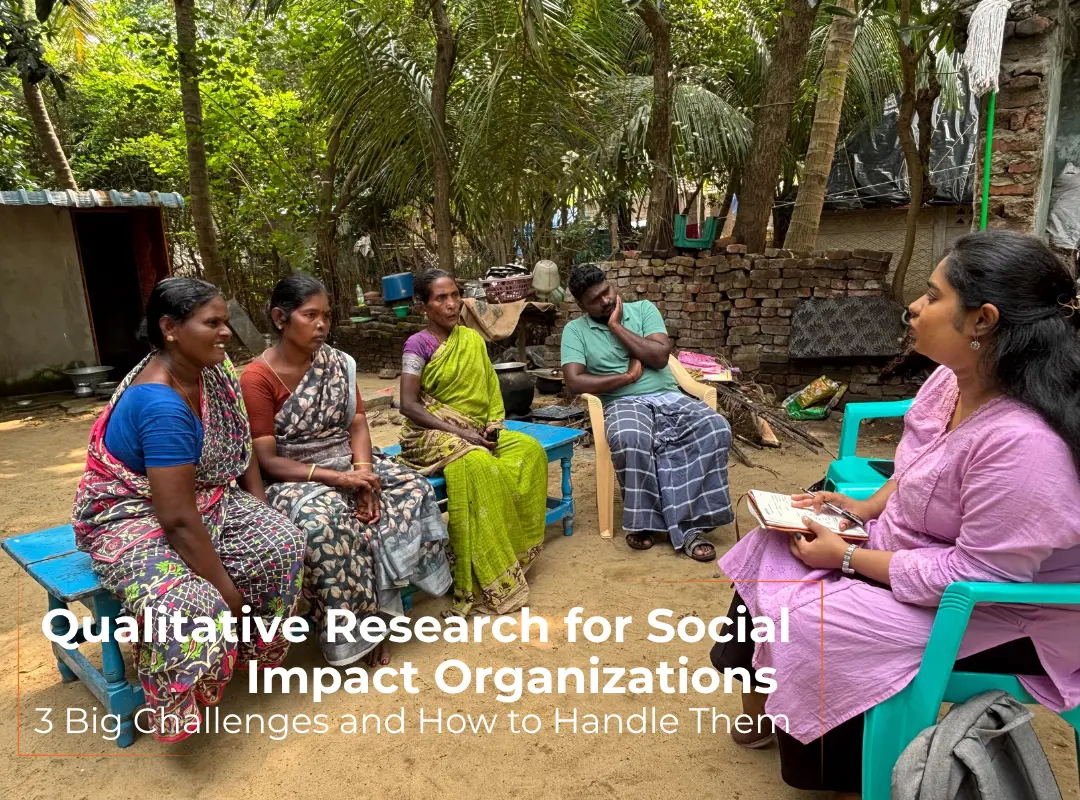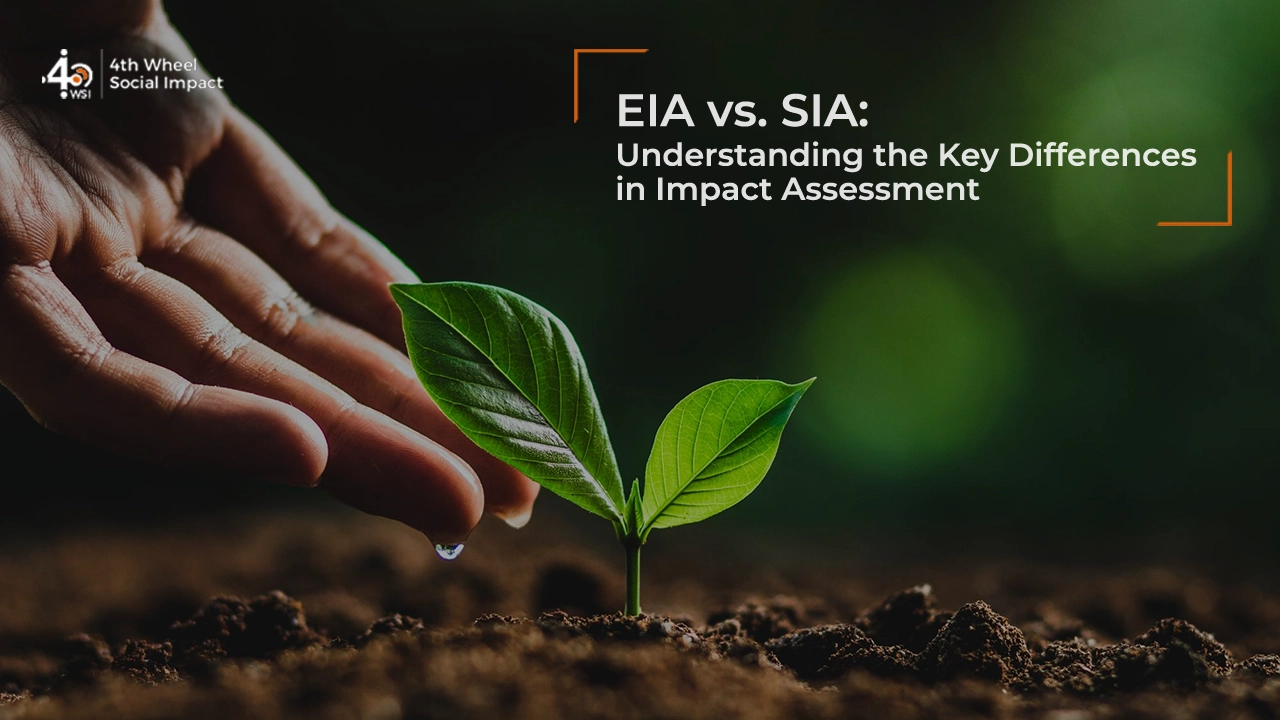Education shapes the future of societies, but strong outcomes don’t happen by chance. Schools, nonprofits, governments, and global agencies depend on data to track progress, address gaps, and measure what works. This is where the importance of monitoring and evaluation in the education sector becomes essential.
At 4th Wheel, we work as trusted monitoring and evaluation consultants, designing systems that combine research with practical tools. By focusing on the role of monitoring and evaluation, we help education programs stay accountable, improve learning environments, and deliver long-term impact for students and communities.
10 Reasons Why M&E Systems are Important in Education
Monitoring and evaluation (M&E) provide the structure that keeps education programs on track. Below are ten reasons that highlight monitoring and evaluation in building strong and sustainable systems for learning.
1. Tracking Student Learning Outcomes
One of the primary functions of monitoring is to track how students perform over time. M&E frameworks collect data on literacy, numeracy, and subject-specific skills. In doing so, they help teachers and policymakers identify trends. With this evidence, schools can adjust teaching methods, introduce remedial support, and focus resources where learning gaps are most visible.
2. Improving Teacher Performance
The importance of evaluation extends to teachers as well. Evaluation monitoring provides feedback on classroom practices, lesson planning, and student engagement. When teachers see evidence of their strengths and areas for growth, they can refine their methods. Over time, this contributes to better student outcomes and creates a culture of continuous professional development.
3. Ascertaining Accountability in Education Systems
Monitoring and evaluation systems strengthen accountability at every level: school, district, and ministry. By documenting how funds are spent, how programs are run, and what results are achieved, M&E prevents waste and misuse. This transparency builds trust among parents, communities, and funding agencies and further reinforces the credibility of educational institutions.
4. Informing Policy and Curriculum Decisions
The importance of monitoring & evaluation in shaping policy cannot be overlooked. Governments and education boards rely on M&E data to decide which programs to scale, modify, or phase out. For example, consistent evaluation findings can highlight which curriculum models improve learning outcomes. This evidence-based decision-making supports policies that are grounded in real classroom realities.
5. Measuring Equity and Inclusion
Education must reach all groups, including marginalized communities, girls, and children with disabilities. The definition of monitoring includes collecting data on participation, access, and inclusion. Evaluation then assesses the impact of interventions designed to reduce disparities. Together, these processes highlight where inequalities exist and guide stakeholders in building more equitable education systems.
6. Strengthening Program Design and Implementation
The role of monitoring and evaluation is central to program design. By gathering baseline data and setting clear indicators, M&E helps define what success should look like from the start. Regular monitoring tracks whether activities are aligned with goals, while evaluation checks if outcomes match expectations. This structured approach improves both planning and implementation, which in turn makes education programs more effective.
7. Supporting Donor and Stakeholder Confidence
Donors and funding agencies want to see clear results. Monitoring and evaluation lie in providing evidence of progress through transparent reporting. When stakeholders see that resources are used effectively, outcomes are measured honestly, and impact evaluation shows a positive change, confidence grows. This not only secures ongoing support but also strengthens partnerships between schools, governments, NGOs, and international education bodies.
8. Encouraging Innovation in Teaching and Learning
The importance of evaluation goes beyond accountability. By identifying what works and what doesn’t, M&E creates space for innovation. Schools can experiment with new teaching models, digital tools, or blended learning approaches and assess their impact. If successful, these innovations can be scaled across systems. If not, the monitoring evaluation tool highlights why they failed and reduces the risk of repeating mistakes.
9. Building Institutional Memory
Education reforms often span decades, and staff or leadership may change over time. Without proper documentation, valuable lessons are lost. M&E systems serve as institutional memory by recording data, findings, and decisions. This record helps new leaders understand past strategies, the differences in monitoring and evaluation, and what needs to be adjusted. As a result, progress continues without starting from scratch.
10. Driving Long-Term Sustainability
The final reason underscores the evaluation importance for long-term impact. Monitoring tracks immediate progress, but evaluation measures how results last over time. For example, M&E can show if literacy gains continue after a project ends or if dropout rates remain low. By revealing long-term patterns, M&E systems guide future investments and strengthen education sustainability.
Read Next: 5 Signs You Need a Monitoring and Evaluation Consultant
Real-Life Examples of M&E Success

The importance of monitoring and evaluation becomes clearer when we look at real programs where M&E frameworks improved outcomes. These examples from 4th Wheel show how data-driven systems create accountability, strengthen skills, and build long-term value in education and skill development.
1. Slum Soccer: Building Life Skills Through Sport
Slum Soccer in Nagpur, Maharashtra, uses football to teach life skills to underprivileged children. The Shakti Girls program focuses on empowering young girls, while DeafKidz Goal supports D/deaf children in building confidence and abilities. 4th Wheel designed a contextual monitoring evaluation framework that included Theory of Change models, indicator grids, and tailored tools.
By applying participatory workshops and mixed methods, the program gained clear evidence of outcomes like improved school attendance and stronger family engagement. This case highlights the role of monitoring and evaluation in making sports-based education more inclusive and measurable.
2. Tesco “ReWare”: Training and Awareness for Better Waste Management
Tesco’s CSR initiative “ReWare” in Bengaluru sought to improve waste management practices in five city wards. While the project began with strong partnerships and community engagement, it lacked a robust data system. The 4th Wheel developed a full M&E framework, including Theory of Change, MEAL tools, digitized data collection, and pilot studies.
Findings revealed moderate household awareness of segregation, gaps in waste handler training, and limited government involvement. With a structured evaluation monitoring approach, the project shifted to more data-driven strategies, showing how M&E strengthens CSR efforts in education-related awareness and training.
3. Quest Alliance: MasterCoach Program for Trainers
Quest Alliance’s MasterCoach program aimed to certify 500 trainers by 2020 to reach 45,000 students across eight Indian states. Unlike content-focused training, MasterCoach developed both technical and soft skills for educators. The 4th Wheel designed a practical Monitoring, Evaluation, and Learning (MEL) framework based on Kirkpatrick’s four-level model: reaction, learning, behaviour, and results.
Tools such as surveys, smile sheets, and participatory video evaluations helped track changes in trainers’ confidence and facilitation skills. This example shows the importance of evaluation in teacher development. It proves that structured M&E improves not only student outcomes but also the professional growth of educators.
Final Thoughts
The importance of monitoring and evaluation in education lies in its power to turn intentions into measurable outcomes. From tracking student learning to shaping policy and supporting teacher growth, M&E gives schools, NGOs, and governments the data they need to make smarter decisions. It also builds accountability, strengthens trust with stakeholders, and drives long-term sustainability.
At 4th Wheel, we bring our expertise as best monitoring and evaluation consultant to education programs across India. By creating contextual frameworks, training teams, and applying evidence-based tools, we help organisations unlock the full potential of their initiatives.
Ready to strengthen your education projects with data-driven insights?
Contact 4th Wheel today and let us support you with expert monitoring and evaluation services.




